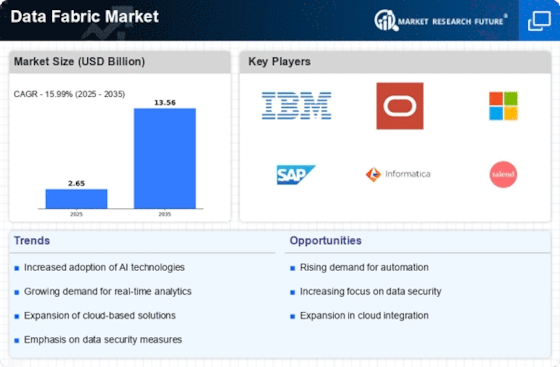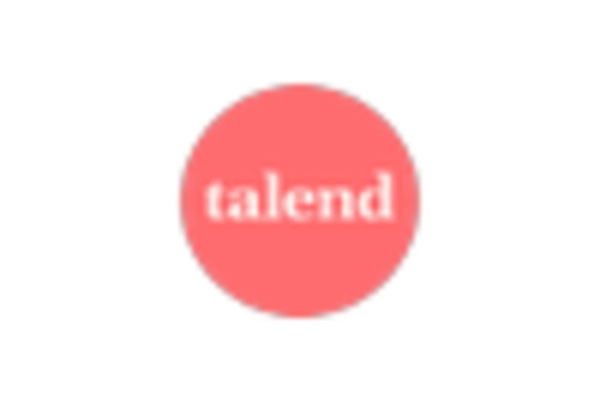Market Analysis
In-depth Analysis of Data Fabric Market Industry Landscape
The growth and changes in the Data Fabric Market are influenced by several market forces that shape its dynamics collectively. One major driver is the fact that there has been a rapid growth of the digital landscape, leading to high volumes of data generated every day across different organizational channels. As businesses collect huge volumes of data from diverse sources, effective management and integration have become imperative for survival. Technological advancement plays a significant part in shaping Data Fabric Markets today. Technological advancements have also led to a more complex and versatile nature of these solutions over time through new ways of storing or processing information as well as analyzing it where necessary. Data fabrics can derive actionable insights from an organization's raw information due to integration with advanced technologies like artificial intelligence or machine learning. It is notable that adoption rates for hybrid cloud and multi-cloud environments significantly impact global markets' development. Data Fabrics require smooth merging between inside premises sources alongside cloud-based ones and hence have gained a lot of importance in view of organizations switching to cloud computing because it allows scaling up when necessary. The competitive field forms one element influencing how Data Fabrics work. Quality competition exists among vendors who create distinctive Data Fabric solutions. Providers are driven by this fact to build the best platforms that are strong, can scale up, and are also industry-specific. Vendors must be capable of making their data fabric products fit these special demands by offering customized solutions that can meet the needs of a given industry. They should make sure that they understand all these things so as to outcompete others in the market and effectively cater to differing customer types. Therefore, regulatory compliance issues, consumer preferences, and concerns over data privacy are key factors influencing Data Fabric Markets. The contemporary world has a lot of governments and regulatory organizations that have put in place strict laws to protect personal information. Security is more than just a feature: it is one of the key decision drivers in Data Fabrics. Due to global regulations such as the General Data Protection Regulation (GDPR) and California Consumer Privacy Act (CCPA), among others, several businesses are compelled to comply with many rules once put into effect.


















Leave a Comment